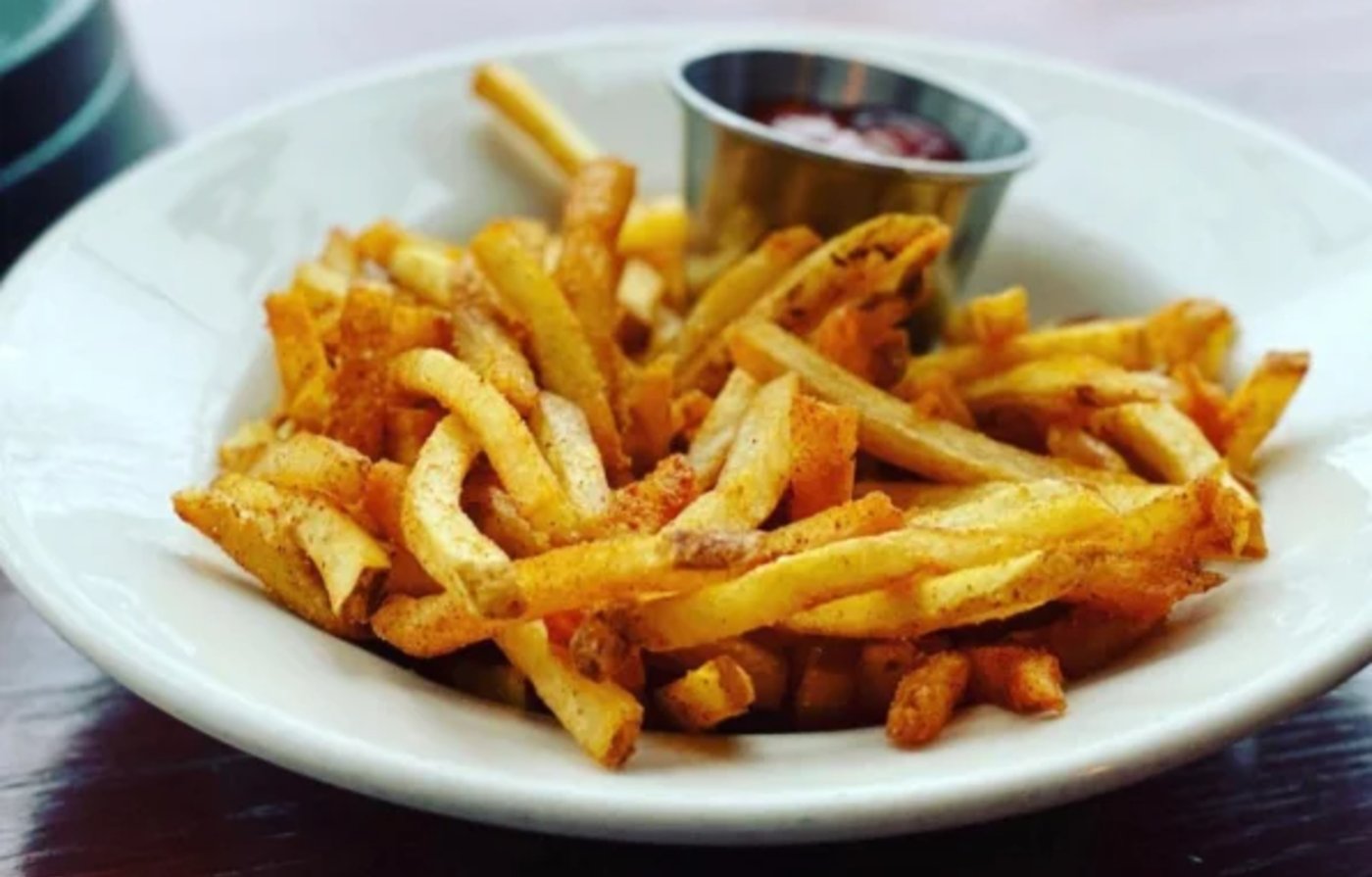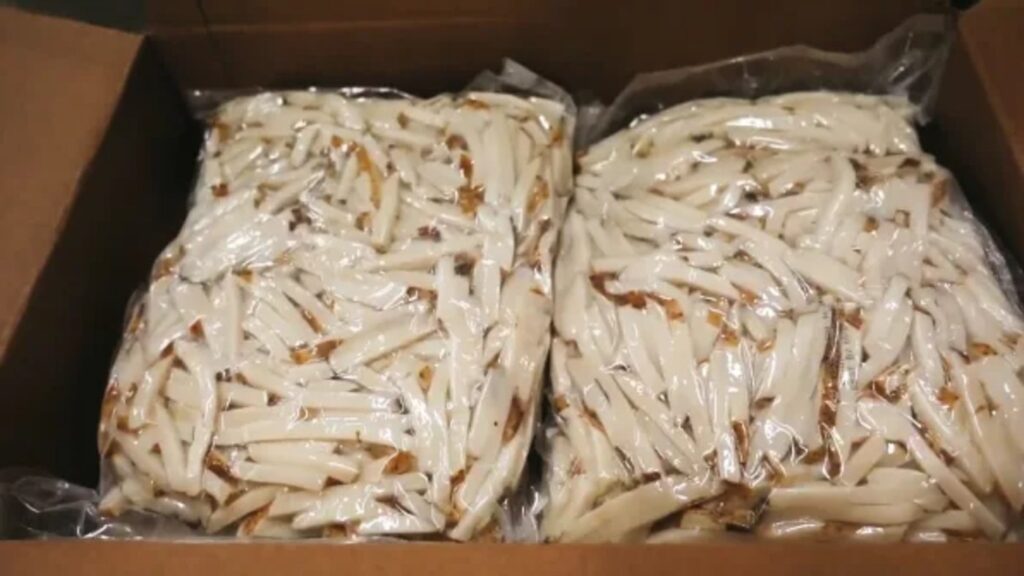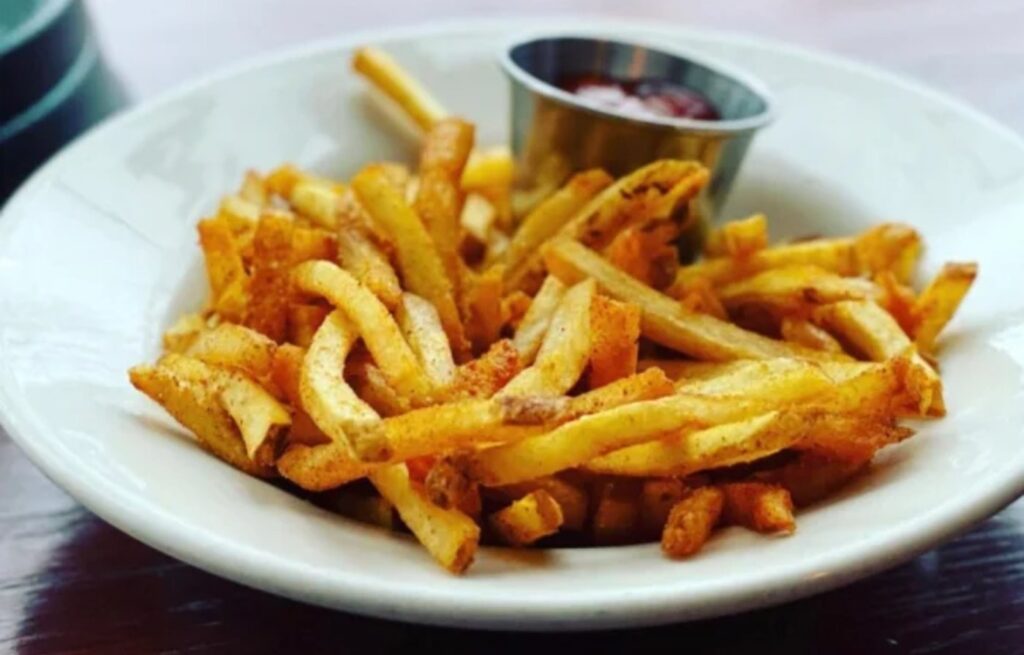
This is actually huge and allows processing to be part of initial production. We show potatoes here but all vegetables and fruit are usuable. It even appears small packaging is easy enough as well.
The point here is that a processed potato can be placed immediately in storage ready to use and not be touched for weeks. Just like freezing.
Except it all applies to a far broader range of product not easily frozen. This will hugely enhance farm manufacture where we have even two thirds of production not meeting retail standards.
Now imagine this working with watermelon.
New Tech Makes Perishable Food Last For Months Without a Fridge, Helping Farmers and the Planet
By Andy Corbley
-May 12, 2021

French Fries – Farther Farms
A food-tech startup in upstate New York has developed technology to preserve food without refrigeration for months beyond when it would normally spoil, without the use of artificial preservatives.
Poised to cut down on the millions of tons of food waste worldwide, it also has the potential to transform agriculture in developing countries where refrigerated shipping containers and trains are rare or expensive.
Have you ever wondered why we don’t devote more cropland to growing fruits and vegetables instead of grain since they’re much more nutritious? The reason is food spoilage, a problem that costs $14 billion in waste in India alone.
As soon as a harvest is reaped, a clock begins to tick until oxygen damage and bacteria render a product inedible. Farther Farms’ proprietary CO2 pasteurization technology is a simple fix that can prolong packaged foods’ shelf life in room temperature past 90 days.
Their first demonstration, French fries, would normally need to be frozen to survive trips between production facilities and supermarkets. They can’t be pasteurized like other goods, since the rapid heating with steam would turn them into mush.
Instead, Farther Farms puts them into special packaging, and fills it with supercritical CO2, preventing damage from oxidation, and suffocating bacteria.
The frozen supply chain

Farther Farms
Growing up in India in a farming family, co-founder Vipul Saran developed Farther Farms as a grad student at Cornell University. His familiarity with the costs and difficulties of managing to move agricultural products, in his case potatoes, from farms into towns and cities before they spoiled informed his development of the technology.
“The whole goal was, basically, how can we look into new, innovative food processing technologies that can allow us to create value-added food products from these perishable food products, which avoids the need and the dependency as much as possible on refrigeration and freezing?” Saran told
Rather than packaging apples or potatoes in a plastic bag, the Farther Farms tech is ideal for value-added food products, not only because they necessitate packaging of some kind, but also because they earn farmers more money, for example turning tomatoes into salsa.
Rather than needing to transport them via refrigerated box car or shipping container, methods that are not only expensive, but limited in their reach to countries in Asia, Africa, and South America, Farther Farms would allow them to bypass the frozen supply chain and ship them at any temperature, thereby allowing farmers and food producers of all kinds to reach the maximal number of markets.
“If you can begin producing internationally and create markets for value-added food products that don’t currently exist, you’re going to do the most to help farmers,” says Saran.
Peters notes that in the States we throw out 30 million tons of food a year, and if you’ve ever pulled out a bag of freezer-burned food from the fridge that you had forgotten about, you can see how this technology would be ideal for family meal planning.
No comments:
Post a Comment